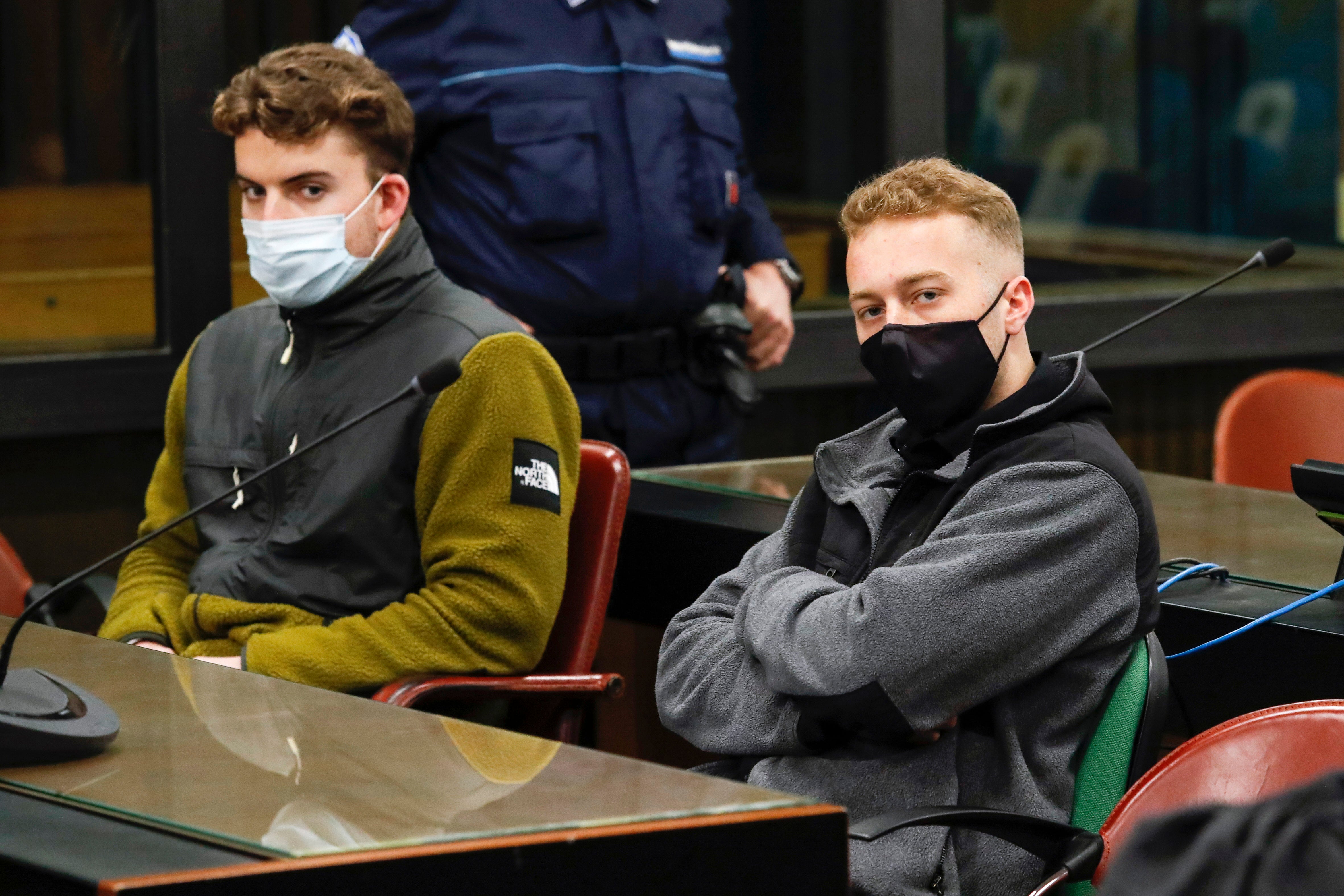Rome court defends murder convictions of 2 U.S. friends
A court in Italy is defending its conviction of two young tourists from California for the 2019 murder of an Italian plainclothes police officer on a Rome street

Your support helps us to tell the story
From reproductive rights to climate change to Big Tech, The Independent is on the ground when the story is developing. Whether it's investigating the financials of Elon Musk's pro-Trump PAC or producing our latest documentary, 'The A Word', which shines a light on the American women fighting for reproductive rights, we know how important it is to parse out the facts from the messaging.
At such a critical moment in US history, we need reporters on the ground. Your donation allows us to keep sending journalists to speak to both sides of the story.
The Independent is trusted by Americans across the entire political spectrum. And unlike many other quality news outlets, we choose not to lock Americans out of our reporting and analysis with paywalls. We believe quality journalism should be available to everyone, paid for by those who can afford it.
Your support makes all the difference.A court in Italy is defending its conviction of two young tourists from California for the 2019 murder of an unarmed Italian plainclothes police officer on a Rome street, dismissing arguments of self-defense as patently implausible.
Lawyers for the defendants on Tuesday were provided copies of the written motivation for the Rome court’s May 5 convictions and life sentences for Finnegan Lee Elder, 21, and Gabriel Natale-Hjorth, 20.
Italian courts are required, within 90 days of a verdict, to formally detail in writing why they decided on verdicts and punishment, with their rationale forming the basis of eventual appeals by defense or prosecutors.
Lawyers for the defendants were studying the document and didn't immediately comment on appeal prospects.
In a 346-page document signed Monday by presiding trial Judge Marina Finiti, the court rebuffed defense arguments that the defendants didn't know they were being approached by police officers near their hotel in the early hours of July 26, 2019. It rejected that the victim, Carabinieri Vice Brigadier Mario Cerciello Rega, 35, who had recently returned from his honeymoon, or his plainclothes partner did not identify themselves as police.
Cerciello Rega was stabbed 11 times by Elder and the partner, Officer Andrea Varriale, was slightly injured in a scuffle with Natale-Hjorth before the Americans ran back to their hotel.
The defendants were convicted of homicide, attempted extortion, resisting a public official and carrying an attack-style knife without just cause.
In Italy, an accomplice in an alleged murder can also be charged with murder without materially doing the slaying. Both defendants have started serving life sentences, Italy's harshest punishment.
Elder testified that Cerciello Rega attacked him without cause and was trying to strangle him, so he pulled out a knife he carried for his own protection and stabbed the officer repeatedly to break free.
“How can the court not ask itself why Vice Brigadier Cerciello, in service for more than 20 years, about whom all spoke of his professionalism, his dedication to work, his experience on the streets, his humanity, ought to have strangled Elder as the defendant contended?” the court wrote.
The court was scathing in its dismissal of key defense arguments, adding: “And if the intention of the two officers was to kill, why would Varriale not have done the same thing with Natale, leaving alive an inconvenient witness?”
The officers were following up on a reported extortion attempt allegedly concocted by the Americans after a bid to buy cocaine in a Rome’s Trastevere nightlife district that transpired a few hours before the stabbing.
The defendants testified they had paid 80 euros ($96) for the drug but didn’t receive it. In reprisal, the Americans snatched a knapsack belonging to the botched deal’s go-between and demanded money and cocaine in exchange for returning the bag and cellphone it contained.
Both Americans testified they thought Cerciello Rega and Varriale were thugs or mobsters who showed up at the arranged rendezvous spot instead of the go-between and acted in self-defense.
Varriale testified that both officers went to the rendezvous without their service weapons and that both showed their police badges and told the Americans they were officers.
“In the end, the only protection (the unarmed officers) had at the moment was precisely that badge," the court wrote, noting that Cerciello Rega's bloodstained wallet was later found.
"Vice Brigadier Cerciello can't offer his version, but his martyred body speaks for him and attests to the murderous fury of Elder,'' the court wrote.